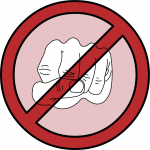Schizophrenia is a long-term mental health condition that causes a range of different psychological symptoms. These include: hallucinations (hearing or seeing things that do not exist), delusions (unusual beliefs that are not based on reality and often contradict the evidence), muddled thoughts based on the hallucinations or delusions, and changes in behaviour. Doctors describe schizophrenia as a psychotic illness. This means that sometimes a person may not be able to distinguish their own thoughts and ideas from reality.
#MindfulnessMonday – Mindfulness moderately effective for reducing symptoms of psychosis, though controlled studies less convincing

Last week, Elly O’Brien blogged about mindfulness-based cognitive therapy (MBCT) for various physical and psychological disorders. Today, another paper from the same authors, looking at the more broadly defined ‘mindfulness interventions’ for psychosis. Elly talked about the use of mindfulness to escape the “emotional quicksand” of negative thoughts, and the authors here again focus on [read the full story…]














